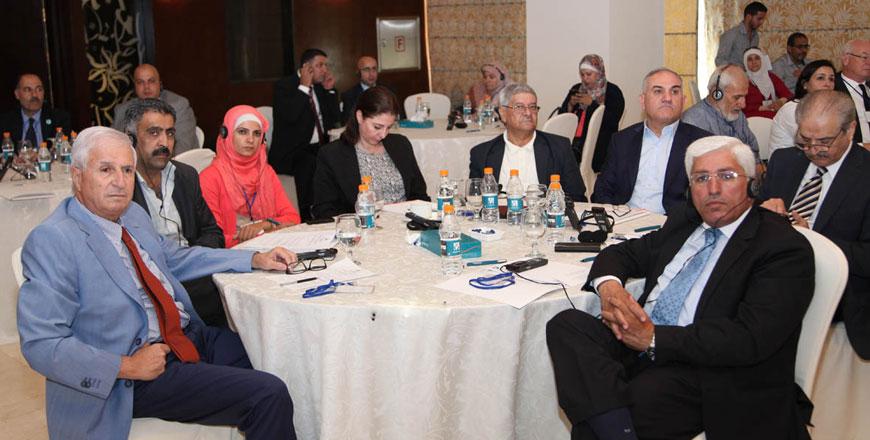You are here
Study proposes overhaul of state funds for political parties
By Khaled Neimat - May 17,2014 - Last updated at May 17,2014
AMMAN — Organising state financing for political parties based on clearly defined parameters will facilitate their development and growth, according to a recently released study.
Titled “Political Paper: State contribution in financing political parties in Jordan”, the study proposed a comprehensive approach in financing political parties while maintaining the fair and effective use of such funds.
The proposal included several stages of financing, starting with an across-the-board annual amount of JD15,000 for each registered and licensed political party.
This amount would help the parties meet their operational expenditures, including office rent and salaries.
However, this assistance should last for five years, according to the study, issued by the Friedrich-Ebert Stiftung’s Amman office and prepared by the Amman-based Identity Centre, a local non-profit organisation that seeks to improve development and leadership in the Middle East.
Under the second level of financing, the study recommended that each party with a 35 per cent women’s representation in its leadership deserves annual funding of JD10,000, and JD5,000 if young people constitute 30 per cent of its leaders.
The study said the state can provide each party that attracts twice the number of required founding members with JD5,000. The same amount can be given to every party that has offices in four or more governorates.
To encourage parties to reach out to supporters online, the state can award each political party that constantly updates its website with JD1,000 in annual assistance, the paper said.
The state can also provide JD30,000 in funds to every party that participates in parliamentary or municipal elections with at least 20 candidates on lists or individual districts, the study suggested.
If the party fails to win any seat in two consecutive rounds of elections, it will not be eligible for assistance in the next two rounds but will receive it once again in the two rounds that follow.
The study proposed that the government can assist parties participating in municipal elections by paying 150 fils for each vote given to a failed candidate in the municipal polls. The rate could reach 300 fils if the candidate wins.
In parliamentary elections, the rate can be 250 fils per vote for unsuccessful candidates and 500 fils for the winners.
This assistance would not be available for any party that does not win a single seat in two consecutive rounds of elections.
Related Articles
AMMAN — A group of 22 political parties on Wednesday issued a joint statement voicing their rejection of a recent government draft by-law on
AMMAN — A new by-law on political party financing will encourage parties to be active in shaping political life in the Kingdom, a top offici
AMMAN — While the government believes that political parties will gain power and influence by forming coalitions prior to the September 20 p
















